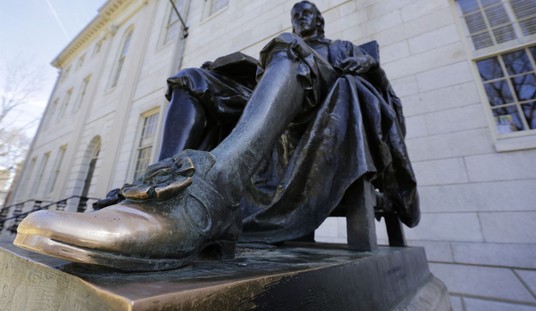I am not a lawyer, and so I rely on the expertise of lawyers at times to help shape opinion on issues. Unfortunately, the law is often not “clear” as lay people claim and constitutional law is often harder to discern, especially as it relates to some language in the constitution that is open to interpretation.
The fact that the law is often not “clear” is the reason I avoid taking cues from lawyers with an obvious political agenda. For example, Alan Dershowitz and Laurence Tribe, both of whom are Harvard law professors, are doing a disservice to that institution with their blatant politicking disguised as legal analysis. Dershowitz defends Trump at every turn and Tribe finds new ways every day to call for President Trump’s impeachment.
Law professor Jonathan Turley offers up cogent legal analysis without concerning himself about politics. He wrote a piece for the Washington Post where he argues President Trump can pardon himself and his family members for anything related to Robert Mueller’s investigation before anything happens, similar to what Gerald Ford did for Richard Nixon. Turley’s piece goes into some depth but is worth reading in its entirety for the fascinating history lesson about presidential pardons. Here is the relevant part:
The issue of whether a president can pardon himself is one of the unanswered questions of the Constitution; it has never happened in the history of our republic. Even Nixon did not stoop to a self-pardon, although he did research it. Neither did Andrew Johnson or Bill Clinton, both of whom were impeached by the House but not removed from office by the Senate. Such an act would make the White House look like the Bada Bing Club. After a self-pardon, Trump could wipe out the Islamic State, trigger an economic golden age and solve global warming with a carbon-eating border wall — and no one would notice. He would simply go down in history as the man who not only pardoned his family members but himself.
Points to Turley for “The Sopranos” reference. He’s right. Turley argues such a move is the equivalent not only of political suicide but also a cemented legacy that wipes out any accomplishments Trump might have during his tenure.
Trump already has abysmally low job approval ratings. The RealClear Politics average for his job approval is a tick under 40 percent. The poll most often favorable to Trump, Rasmussen, shows Trump’s support upside down by 14 points (43/57).
Turley makes clear any pardons issued now wouldn’t be for the benefit of protecting anybody from jail time:
Pardoning his associates at this stage would clearly have a tactical benefit, but the historical and political costs of that would be immense. The most obvious reason for issuing pardons now would not be to protect any of the key people from jail but to limit Mueller’s leverage over witnesses. Mueller has selected a team of prosecutorial heavies, some of whom are known for flipping witnesses and using pressure to secure their cooperation. A pardon removes that option and reinforces the ability of close associates to take a hard line with investigators.
It’s a great point. Why would you bother cooperating with an investigation if you’ve already received a pardon for anything related to the inquiry?
It is possible Trump is engaging in his typical bluster, saying he has the authority to pardon himself just to make a point. That said, it also is a complete reversal of the promise to “drain the swamp.” Such an action fits perfectly within the parameters of an “establishment” politician using the power of his office to escape responsibility for his actions. His core supporters won’t agree, but they’re likely going to back him no matter what decision he makes.
Considering the pardon route is akin to juggling with swords if you’ve never done it before, it will likely end badly.














Join the conversation as a VIP Member